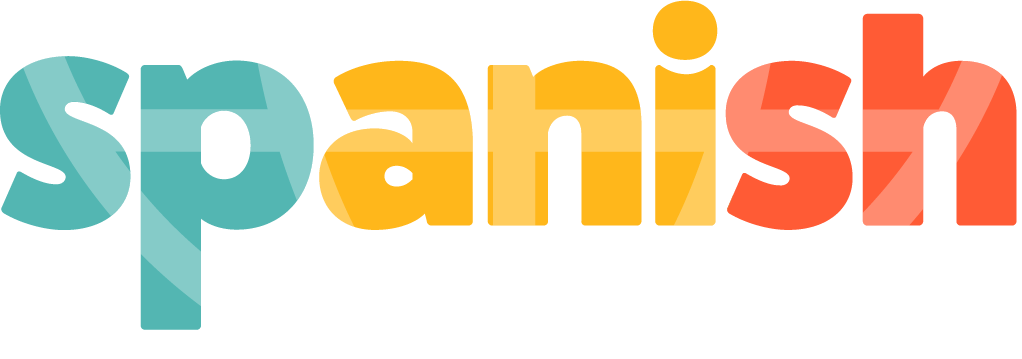At birth, the baby brain can distinguish difference between all 800 sounds. That means that infants can learn any language to which they’re exposed. As time passes babies figure out which sounds they are hearing the most. Between six and 12 months, infants who grow up in monolingual households become attuned in the subset of sounds in their native language. By their first birthdays, monolingual infants begin to lose their ability to hear the differences between foreign language sounds.
Research definitively proves that our minds are capable of distinguishing different languages from a very early age. Because students are only spoken to in Spanish from the very first day at Spanish World School, they very quickly know that they will hear something different at school than what they hear at home. And because we know that students receive an adequate amount of English outside of school (through conversations with friends and family, exposure to books and TV, etc.), there is no reason to believe that their English skills will be delayed whatsoever.
Parents receive monthly vocabulary lists and a description of the unit of study, so that they remain aware of what students are doing at school. We encourage parents to practice basic vocabulary in Spanish when possible, and also to supplement their education in Spanish with books and conversations in English. For example, if we are studying about ocean animals at school, parents may want to read English books at home about the same topic.
Infants maintain their own schedules as they become accustomed to the classroom routines.. Toddlers start with a daily routine including circle time, reading time, learning centers (blocks, art, early math, dramatic play, fine & gross motor skill development), outside play, lunch and nap time.
Preschool students participate in our Project-Based learning model, in which they actively investigate a driving question and work towards the creation of a final product that is then presented to their classmates, teachers and community members. Music, dance, early literary and critical thinking activities, as well as social/emotional learning are also a part of their daily routines.
Infant & Toddler classes: 10 – 12 students to 3 teachers
Preschool classes: 14 students to 2 teachers
Annual online registration for new families is at the beginning of February; however, students can be added to the wait list throughout the year. Depending on spaces available, students are able to start either in June for the 8-week summer session or August for the school year.
Complete online application and send $100 cash or check to: SW NURSERY SCHOOL, 4411 Skillman St. Dallas, TX 75206 OR 550 N. Haskell Ave. Dallas, TX 75246. Please write your child’s name on the check.
You will receive an email confirmation that your child has been placed on the waiting list. The wait list does not carry over year to year.
Our nursery, preschool and elementary programs are rooted in project-based learning. Students are engaged in authentic learning experiences through in-depth and purposeful investigations. During the inquiry process students are exposed to early literacy and math standards that prepare them for early reading, math, critical thinking, and problem-solving skills. Teachers become facilitators in the process of investigation, revision and reflection. Students remain engaged in real-life experiences throughout the unit of study in order to create a tangible, useful product to be shared with the community. At the end of each unit, students present their projects to their classmates, teachers, parents and community members. The presentation piece is critical to the students’ understanding of the topic as well as development of their oral language skills.
Some examples of monthly projects include: World Market, in which students learn about different cultures and countries as they prepare products to sell at a World-Expo where students can buy and sell their goods; We are Alive!, in which students transform their classrooms into different habitats, complete with animals, plants and information about geography and Thankful for Spanish, a unit that allows students to communicate with Spanish-speaking students at partner schools in Puerto Rico, Mexico, Spain and the US.
Something helpful to consider is that, “The more input, the more output.” Students who attend immersion classes twice a week for three hours a day will develop their Spanish skills at a different rate than those who attend five days a week for 8 hours per day. That being said, it still is a long process. Typically it takes 5 – 7 years for students of a second language to achieve advanced fluency. There are other factors that contribute to students’ progress as well, including their background to the language, their exposure to it outside of school and their personalities. While not always the case, usually those who are more outgoing will be more inclined to take the risk and speak out loud. It’s important to note that even if they don’t have a lot of oral production, students’ minds are still processing the language and working hard to make sense of what they are hearing.
Spanish World School hosts two yearly outdoor carnival and a yearly service project each December, as well as holiday, teacher appreciation and graduation celebrations. We hold parent-teacher conferences twice a year. Preschool classrooms each have one or two parent coordinators to help organize events throughout the year. We welcome parent support at the school and are proud of our tight-knit family community.
All preschool students attend physical education classes during the school day with our full-time PE teacher. Students are engaged in activities to develop their gross motor skills, as well as team-building and good sportsmanship.
We also offer after-school enrichment classes, including yoga, theater, Tae Kwon Do, Zumba and basketball. These classes are available for all SWS students for an additional cost.
If students do not continue their studies at Spanish World Elementary School, we offer after-school enrichment classes for alumni students. We also offer private and small-group tutoring to help students advance their language skills.
